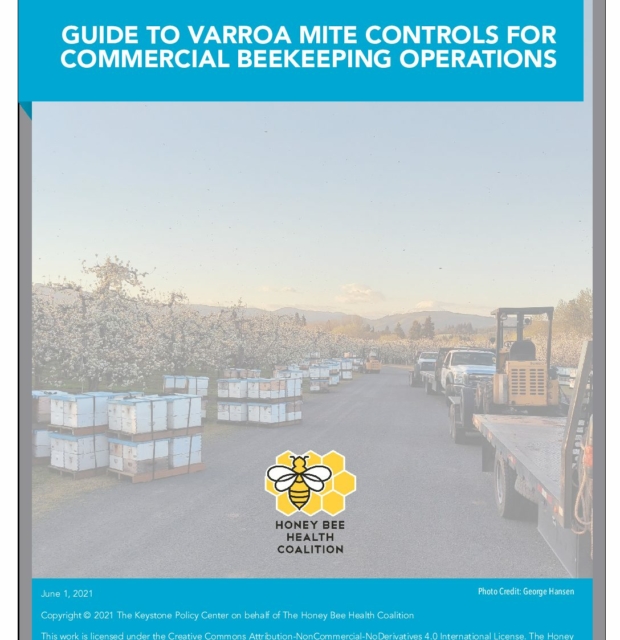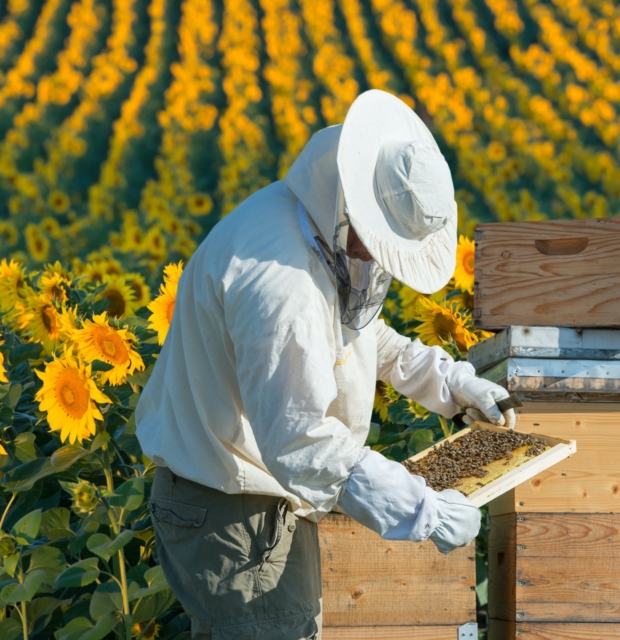News
Honey Bee Health Coalition Urges Collaboration, Multifactor Strategies Following Release of National Survey of Colony Losses
The Honey Bee Health Coalition, a diverse group of nearly 50 organizations working to support honey bee and pollinator health, urged continued cross-sector collaboration following the release of a national survey showing 40 percent of managed honey bee colonies in the United States were lost between April 1, 2017 and March 31, 2018. Beekeepers reported a 30.7 percent loss rate over the winter. These losses, tracked by the Bee Informed Partnership, were a nearly 7 percentage points increase for annual loss rates and nearly 10 percent for overwintering loss compared to the previous year’s loss rates.
“From hurricanes along the Gulf Coast to the Midwestern drought — which affected my own operation — to wildfires in the West, this has been a challenging year for beekeepers,” said Chris Hiatt, vice president of the American Honey Producers Association. “The Honey Bee Health Coalition and its partners have made important progress improving honey bee health, but these colony-loss numbers and environmental challenges only underscore that we still have work to do.”
The Bee Informed Partnership also tracked summer-season colony mortality and found that beekeepers’ losses of 17.9 percent of their managed colonies was on par with the previous year’s loss rate.
“While the Honey Bee Health Coalition is concerned by these reported losses, I am optimistic that the problems facing beekeepers are closer to being resolved,” said Kentucky State Apiarist Tammy Horn. “The Coalition strives to develop new approaches to improve nutrition, educate our community about Varroa mites and treatments, advocate for IPM practices that protect bees from incidental pesticide exposure, and increase communication among all sectors of agriculture.”
“Beekeepers, farmers, businesses, and NGOs have made tremendous progress supporting honey bee health. But more collaboration and broad-based strategies are needed to reduce colony losses,” said Julie Shapiro, the facilitator of the Honey Bee Health Coalition and a senior policy director at the Keystone Policy Center. “The Honey Bee Health Coalition is committed to continuing to bring together diverse organizations to find action-driven solutions to improve honey bee forage and nutrition, reduce incidental pesticide exposure, support sound hive management practices, and enhance collaboration and communication.”
Honey bees play an essential role in North American agriculture and global food supplies — with bees supporting approximately one in three bites of the food we eat every day. The Coalition has worked since 2014 to collaboratively implement solutions that will help to achieve a healthy population of honey bees while also supporting healthy populations of native and managed pollinators in the context of productive agricultural systems and thriving ecosystems.
Since its inception, the Coalition has focused on finding collaborative, science-based solutions to improving the health of honey bees and other pollinators. Recent initiatives include:
- Coordinating a $1.1 million effort to explore potential new compounds to help beekeepers treat and control destructive Varroa mites.
- Developing best management practices to help soybean growers protect honey bees foraging in and around their fields.
- Educating certified crop advisers on how they can help farmers support pollinators and reduce unintended pesticide exposures.
- Supporting an array of teams through the Bee Nutrition Challenge to develop innovative strategies to enhance bee nutrition.
- Demonstrating how honey bee health can be improved using a portfolio of tools together in the same agricultural landscape to address multiple factors through the Bee Integrated Demonstration Project.

